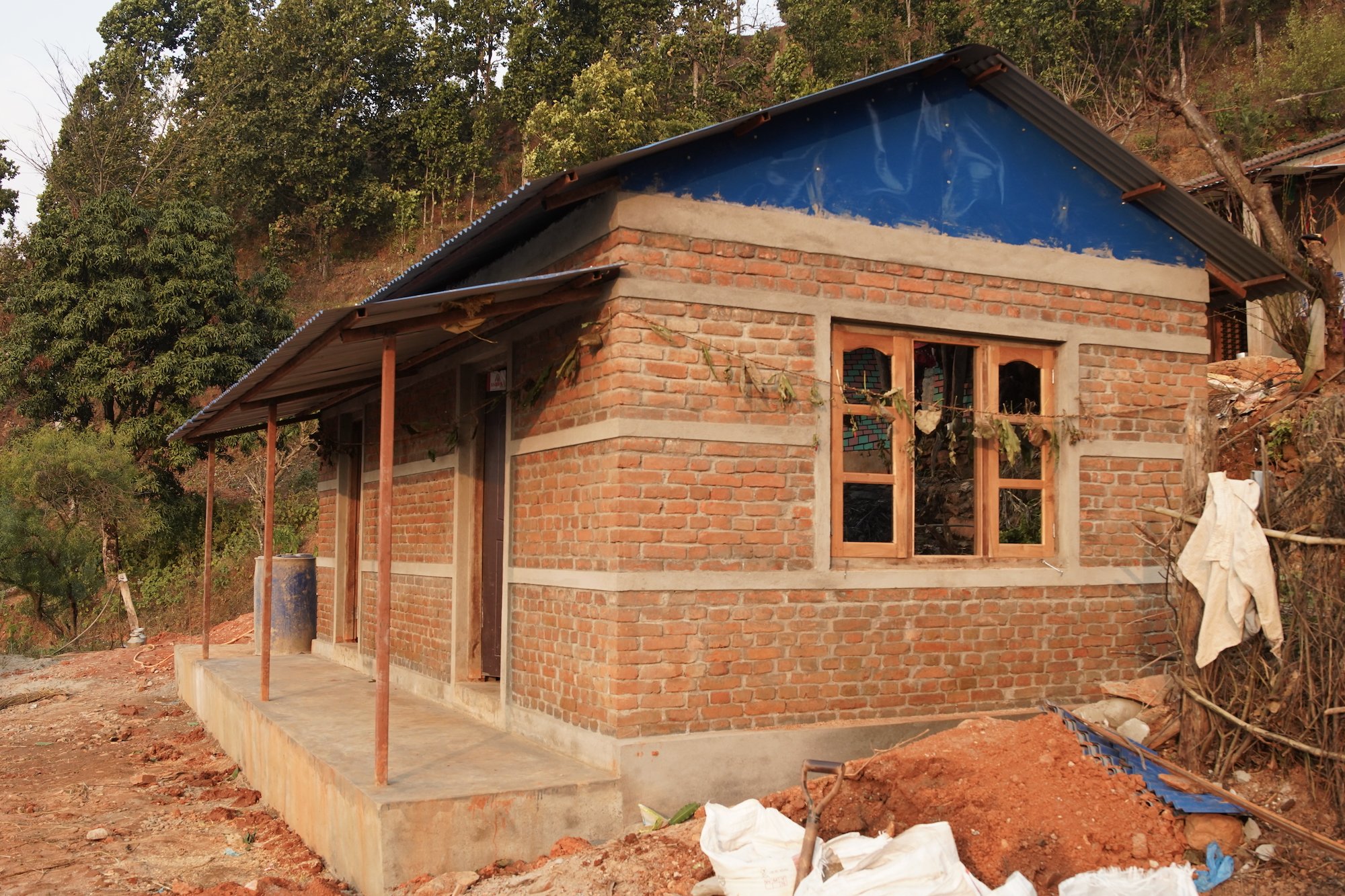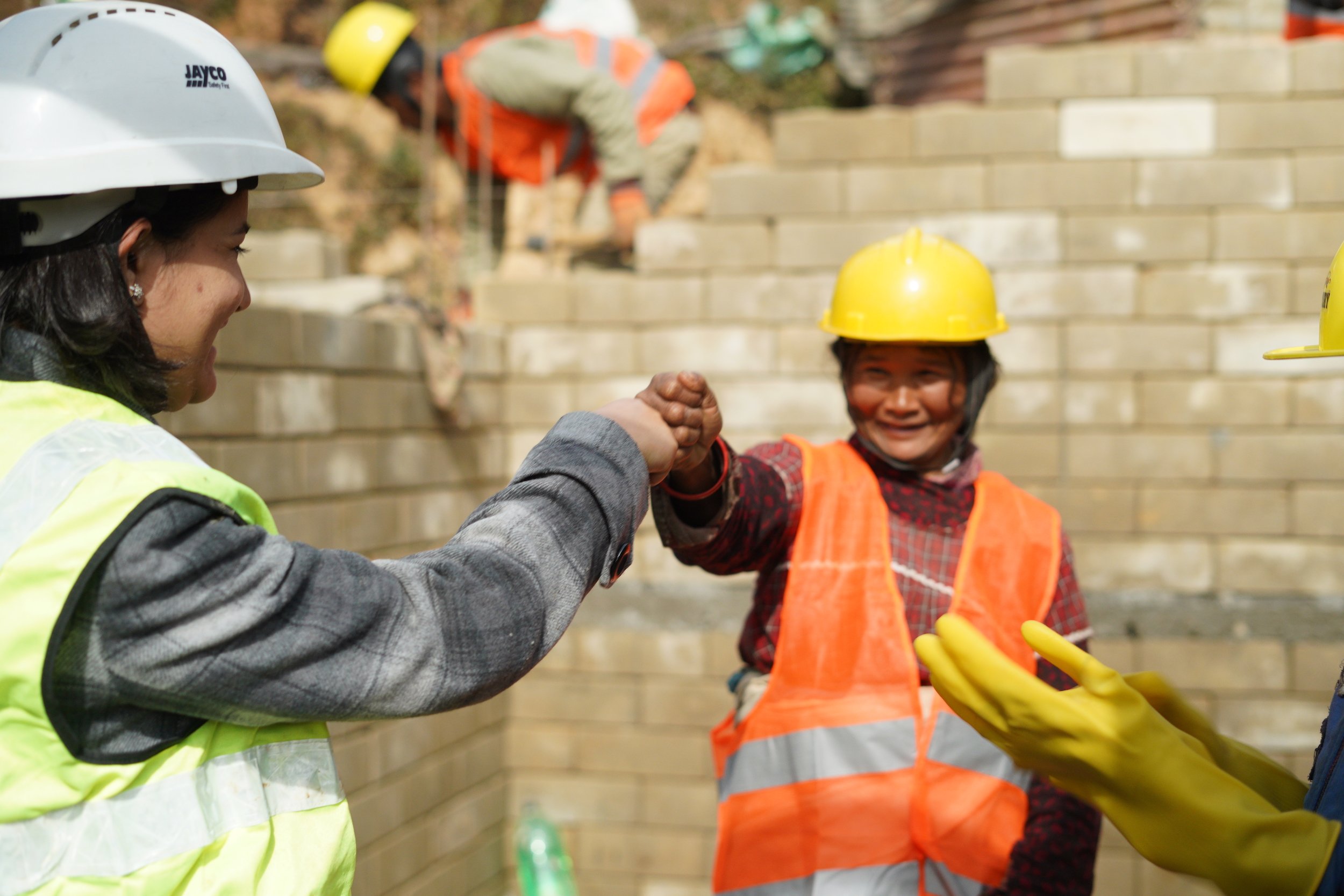IMPACT REPORT FY2021
Despite climate and COVID’s best efforts, NIVAS had a very successful 2021 bringing good housing to good people in need.
Read on to find out what we achieved with the backing of our supporters.
Through collaboration, NIVAS brought immediate COVID-relief aid to 564 people.
As the pandemic loomed out of control in Nepal, with deaths surpassing those of the 2015 earthquakes and the country being paralyzed by strict lockdowns, NIVAS partnered with 3 organizations to bring immediate aid to 564 people. Food, hygiene supplies, PPE gear, and blankets were provided to vulnerable populations during the roughest stretches of the year.
NIVAS built 12 homes for 43 people, including 31 kids.
We worked side-by-side with single mothers, grandmothers, and children whose safety and futures were at risk, to achieve official land ownership, learn critical skills to further their construction knowledge, and ultimately built solid secure homes that they now own outright, despite hiccups and delays caused by lockdowns and inordinately long monsoon rains.
20 Local people attended our construction trainings and 15 more developed workforce-ready skills on our job sites.
Participants in our training courses and on-site workforce development program, were able to have a more 1-on-1 experience this year due to COVID, allowing them to hone their skills in building to local codes. Not only does this increased experience help with job opportunities, it also improves building knowledge and building stock throughout the community.
64 Local Women attended our livelihood trainings and we invested seed capital into their new home-based businesses.
Our pilot livelihood program was a great success. Homeowners chose goat farming as their income-generating activity of choice, and so our program brought localized goat farming trainings to over 64 women and their families. The trainings covered everything from grass selection and cultivation to immunizations and insurance. Main program participants received 2-3 goats each (depending on the age/gender of the goat) and supporting materials to begin their goat farming operation. In a region where good-paying work is extremely rare for single mothers, a home business that earns real returns without requiring significant land or time away from home is critical to improving outcomes for families experiencing extreme poverty.
Our programming created 26 jobs, including engineering, social work, research, teaching, masonry, woodworking, and carpentry.
So many motivated people have joined with NIVAS to further this mission. The collaborative process of first finding vulnerable families, then utilizing every available resource to help them move out of insecure shelter and extreme poverty into stable living conditions requires experts and energy at all levels. We are very proud to work with amazing local minds and hearts to achieve this mission and are happy to create good jobs along the way.
We’ve expanded our reach to vulnerable disaster-affected communities.
To date we've been working in the hilly regions of Nepal mostly for communities that were heavily affected by the 2015 earthquakes. As extreme weather events increase, displacing more families around the globe, in 2021 we began the expansion of our programming to vulnerable communities experiencing frequent displacement. Our first target community is Saptari in the Terai region. The Musahar community there, considered an untouchable caste, experiences extreme marginalization restricting them to an undesirable section of land squeezed by two rivers that flood annually. On a yearly basis, they must abandon their homes temporarily, flee to higher ground, then return to ruined crop stores, property, and structures. They spend significant time and income rebuilding or repairing their homes every year. NIVAS has partnered with local community leaders to determine what is needed most and we are currently in the process of developing a new prototype home to solve the most fundamental problems for these homeowners.
If you'd like to offer your skills in architecture, engineering, construction, DRR, or other relevant fields to develop this prototype, please join us February 11th at The Posner Center for International Development.
We piloted a new-to-the-region building technology, CSEB, allowing us to build more homes for at-risk families.
Compressed Stabilized Earth Block is a unique building material. It can be made on site, given the right conditions, or nearby. During this pilot phase we purchased CSEB blocks from local suppliers, supporting their at-home businesses and allowing us to both select high quality blocks and complete as many homes as possible during the limited build seasons. The families we work with are unhoused or living in very temporary shelter, so speed is of the essence. With CSEB, going from digging the foundation to putting the roof on takes 3 weeks. Upon initial review, this building technology is going over well with both the homeowners and the builders alike. It’s fast. It’s handsome. It’s sturdy. People like it. Based on the response, we’ll continue our study of CSEB into 2022.
We supported local businesses from material suppliers to mo:mo makers to chicken farmers.
Our highly involved process creates so many opportunities to support the local economy. In 2021 and every year in operation, we intentionally utilize local suppliers and local support services so that the benefits of our projects spread throughout the community.
MAJOR THANKS to everyone who made this work possible in 2021!
You truly are amazing and we have the utmost appreciation for your commitment to making positive change for deserving families. Let’s keep doing BIG THINGS together in 2022.









